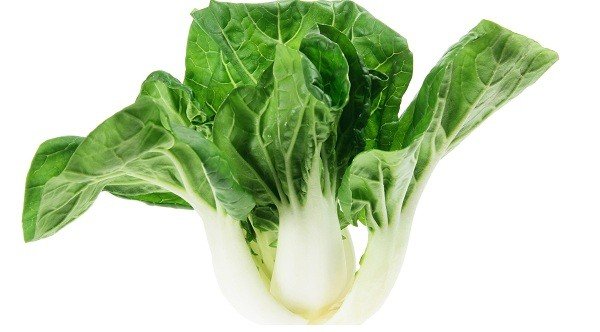Bok Choy

Bok choi cabbage is one of the most ancient Chinese vegetable crops, which has gained quite a lot of popularity not only on the Asian continent, but also in Europe.
The bok choy cabbage is a close relative of the Peking cabbage or known to most of us as Chinese, but it differs from it externally, biologically, and also in its nutritional qualities.
Although they are completely different, agronomists often confuse them. Bok choi has dark green leaves and bright white stems, while Chinese cabbage has light green leaves and stems.
Bok choy is much juicier and spicier in taste than Chinese. Their main difference is the coarser and mossy leaves.
Bok Choy is among the early ripening varieties of cabbage and does not form a cob. Its leaves are about 30 cm in diameter. Its stems are thick and tight-fitting, protruding downwards, often occupying 2/3 of the entire mass of the plant.
Nutritional value of 100 grams of bok choy
• Proteins – 1.5 grams;
• Fats – 0.2 grams;
• Carbohydrates – 1.2 grams;
• Minerals salts – 0.8 grams;
• Water – 95 grams;
• Calorie content – 13 kilocalories;
Bok choy belongs to the group of low-calorie foods, as its energy value is very low, only 13 kilocalories per 100 grams.
Beneficial properties
Low caloric content is not the only advantage of this type of cabbage. This vegetable is rich in fiber – plant indigestible ballast substances.
Vegetable fibers are a very important component of a complete diet, as they serve not only to prevent problems with emptying the intestinal contents, but also effectively cleanse the colon of toxins, slags and cholesterol.
The leaves of bok choy contain a large amount of vitamin C, which is valuable for the human body and for the blood vessels in particular. The circulatory organs retain their resistance and elasticity thanks to ascorbic acid.
Vitamin C is essential for the synthesis of the protein collagen, which enables the skin to remain elastic and resilient for a longer time. 100 grams of leaves of this type of cabbage contain about 80% of the required daily dose of vitamin C.
This vegetable is also a source of vitamin K, which improves a very important blood indicator – clotting ability. A person can obtain the daily required amount of this useful nutrient by consuming 200 grams of bok choy cabbage.
It should be noted that if blood thinners are taken, the consumption of this type of cabbage is contraindicated, as vitamin K will neutralize the effect of these medications.
Bok choy contains the highest amount of vitamin A compared to other types of cabbage. This nutrient stimulates the renewal of the skin at the cellular level, and in its absence, the synthesis of rhodopsin is not possible – a light-sensitive pigment through which, to a certain extent, vision is realized.
Vitamin C deficiency negatively affects vision and often its deterioration at dusk, a condition better known as “hen blindness”.
This type of cabbage is a very valuable dietary vegetable. Its use in diseases of the gastrointestinal tract and the cardiovascular system is demonstrable.
The juice from this type of cabbage has bactericidal properties and retains all biologically active vitamins, minerals and enzymes.
Bok choy is considered an ancient healing agent. Its juice, due to its healing properties, is used in the treatment of non-healing wounds, ulcers and burns.



